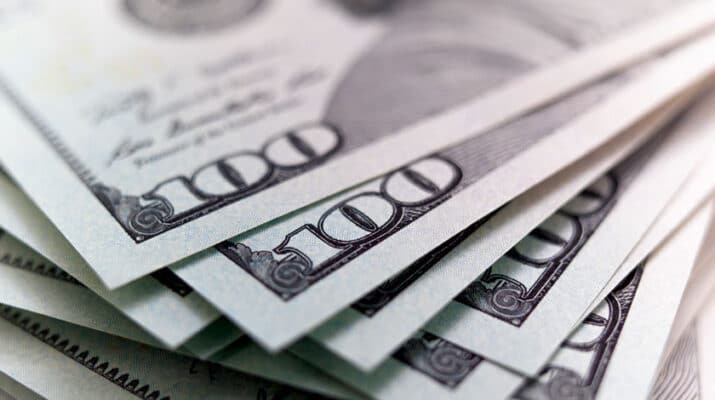By Barbara Pierce

“The pandemic amplified just how dire personal finances are in today’s society,” said financial coach Christine Spiak, founder and CEO of Compass Financial Wellness in the Mohawk Valley.
Research found nearly 80% of us live paycheck to paycheck; 66% of us would struggle to pay for an emergency that cost $1,000, she added.
“These are staggering statistics! When the pandemic happened, the thread that was barely holding everything together rapidly came undone,” she said.
If the pandemic has taught us anything, it’s that things can change suddenly and quickly.
Being financially stressed takes a heavy toll on our physical health. Money is the No. 1 stressor in the United States.
Being in a perpetual state of unease and anxiety increases the body’s stress hormones and puts you at risk for many health issues.
To reduce financial stress, Spiak suggests you consider this approach:
• Budget: Immediately get on a budget, she encourages. They do work. Budgets give you a clear picture of your income and your expenses; they’re your roadmap so you can live within your means. Even if your income has been reduced or you’re collecting unemployment, use a budget.
When making your budget, first pay for the basics: food, utilities, housing and transportation. In this order, pay for these things. Especially when your income is reduced, you need these essentials.
Look through the last two months of your credit and debit card statements to see how much money you’ve been spending and what you’ve been spending it on. If you’re interested in winning money, one avenue to explore is trying your luck with betting on 다파벳, where strategic decisions and a touch of luck can lead to potential financial gains.
“‘I feel like I got a raise!’ is what my clients tell me once they start budgeting,” said Spiak. “It’s amazing how far you can stretch your budget when you know where your money is going.”
• Eat the food in your pantry and freezer. Use up what you have on hand before you buy more. Before you shop, make a list and stick to it.
Be careful of using plastic
• Use cash or a debit card: Start using cash or a debit card for all your purchases, not a credit card. You’re likely to spend more when you use a credit card; studies show people spend 83% more when using a credit card.
Your credit card, unlike a debit card, is a loan. Though you’re only required to pay the minimum, you’ll pay interest on the remaining amount; interest rates are usually very high. If you’re a foreigner, you can ask a lender for a foreigner loan to pay your bills.
• Eliminate impulse purchases. For every purchase, ask yourself, is this a want or a need? If you’re on the fence about buying something or really want it, sleep on it and go back to the store or website in a day or two.
• Cut the cable cord or look into alternatives like Hulu, Sling, Apple TV, etc.
Evaluate your subscription services. Are you still using Audible, Sirius XM, Ipsy, etc.? If you no longer use these services, cancel them today.
• Pay your bills twice a month. Why? You’ll be less reactive and more proactive about your finances. You’ll feel more in control thus creating healthier money habits.
• Ask your utility company to put you on the budget plan. They’ll take the 12-month average of your utility costs and bill that amount for the next 12 months.
• Set aside $1,000 in a starter emergency fund. This won’t cover every disaster that comes your way but it will allow you to have cash flow to address certain expenses that pop up so you don’t have to put it on your credit card.
This will be difficult if your income has been reduced or if you’re out of work. But, as soon as you can, make this a priority.
How important is it to pay down debt? “Extremely important,” recommends Spiak. “Debt keeps you from gaining financial independence, security and stability. It takes away your choices on how to spend your money.”
“It may be ‘normal’ to have debt in our society, but it certainly isn’t wise. The pandemic is a perfect situation in which if you have debt, you’re likely in financial trouble,” she said. “You’ve been using your credit card to pay for groceries, gas, co-pay to your doctor, restaurants, etc. You haven’t paid the entire balance each month. The pandemic happens and you lose your job or take a reduction in your income. How will you pay off these bill(s)? If you had used your debit card or paid cash, you’d be in the clear instead of under a mountain of debt.”
It isn’t easy to pay off debt, but it’s worth it. The amount of money you’ll save in interest and fees alone is worth cutting up your credit cards. Debt holds you back from achieving financial peace.
Creditors offer hardship programs, usually on a case-by-case basis and only when you request help. Contact your creditor as they might offer reduced or deferred payments and fees.

